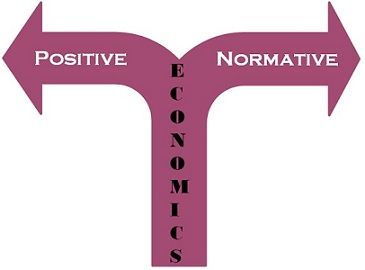Positive Economics And Normative Economics Pdf
Normative economics (as opposed to ) is a part of that expresses or judgments about economic or what the outcome of the economy or goals of ought to be.Economists commonly prefer to distinguish normative economics ('what ought to be' in economic matters) from ('what is'). Many normative (value) judgments, however, are held conditionally, to be given up if facts or knowledge of facts changes, so that a change of values may be purely scientific. On the other hand, welfare economist distinguishes basic (normative) judgments, which do not depend on such knowledge, from nonbasic judgments, which do.

He finds it interesting to note that 'no judgments are demonstrably basic' while some value judgments may be shown to be nonbasic. This leaves open the possibility of fruitful scientific discussion of value judgments.Positive and normative economics are often synthesized in the style of. In this discipline, sometimes called the 'art of economics,' positive economics is utilized as a practical tool for achieving normative objectives.An example of a normative economic statement is as follows:The price of milk should be $6 a gallon to give dairy farmers a higher living standard and to save the family farm.This is a normative statement, because it reflects value judgments.
This specific statement makes the judgment that farmers deserve a higher living standard and that family farms ought to be saved.Subfields of normative economics include social choice theory, cooperative game theory, and mechanism design.Some earlier technical problems posed in and the have been sufficiently addressed as to leave room for consideration of proposals in applied fields such as, social indicators,. See also. ^ and (2004)., 18th ed., pp. 5-6 & end Glossary of Terms, 'Normative vs. Positive economics.'
. Stanley Wong (1987). 'Positive economics,' The New Palgrave: A Dictionary of Economics, v. 21. (1970), Collective Choice and Social Welfare, pp.
61, 63-64). Marc Fleurbaey (2008). 'Ethics and economics,'.References.
E3 flasher ps3 slim cech-3001b. Are there any cons to this method? Hi, I'm a PS3 newb and I'm somewhat confused by various posts saying that I absolutely need a hardware flasher like E3 to downgrade.I have a Phat PS3 80Gb (CECHK) and it has 4.81 currently installed.The instructions and tools from don't seem to require any flasher.

and Andrew Schotte, ed. The Foundations of Positive and Normative Economics: A Handbook, Oxford. And.
Positive And Normative Economics Macroeconomics
Marc Fleurbaey (2004). 'Normative Economics and Theories of Distributive Justice,' The Elgar Companion to Economics and Philosophy, J.B. Runde, ed., pp. (2008). 'Ethics and economics,'. Milton Friedman (1953).
',' Essays in Positive Economics. (1987), “Value judgments,' The, v. 4, pp. 792–93. and Michael S.
McPherson (1996). Economic Analysis and Moral Philosophy, Cambridge: Cambridge University Press. Phillipe Mongin (2002). 'Is There Progress in Normative Economics?' In Stephan Boehm et al., eds., Is There Progress in Economics?, pp.
(1970), Collective Choice and Social Welfare. '5.3 Basic and Nonbasic Judgments' & '5.4 Facts and Values,' pp. 59–64. Stanley Wong (1987).
“Positive economics,' The New Palgrave: A Dictionary of Economics, v. 3, pp. 920–21.
Though normative statements are generalized and subjective in nature, they act as the necessary channels for out-of-the-box thinking. Such opinions can form the foundation for any necessary changes that may have the potential to completely transform a particular project. But normative economics cannot be the sole basis for decision-making on key economic fronts. Positive economics fill in for the objective angle that focuses on facts and cause-and-effect.
Coupled with positive economics, normative economics may be useful in establishing, generating, and fulfilling new ideas and theories for different economic goals and perspectives.